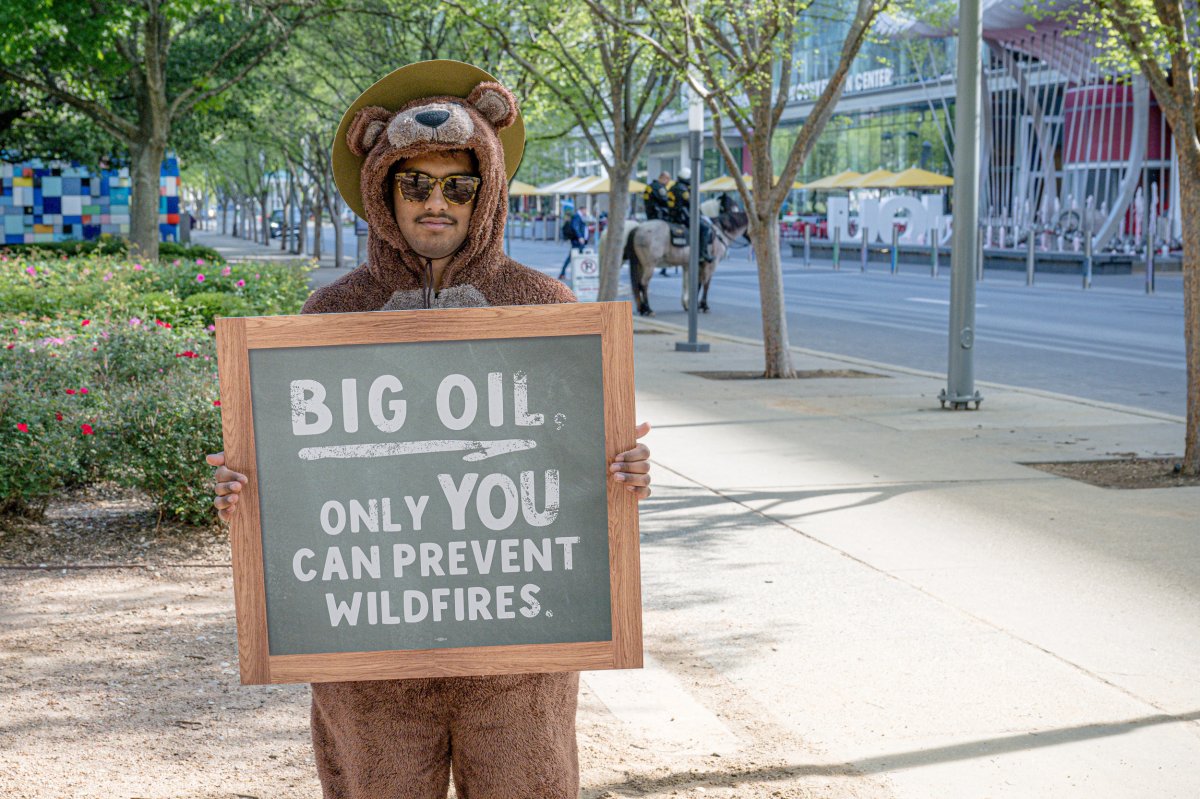This year's presidential election will be a referendum on the future of U.S. climate policy, where the contrast could not be clearer for the largest and youngest minority groups in the country. In his first term, President Joe Biden has led historic climate action, delivering significant legislation to face the climate crisis. Meanwhile, former President Donald Trump promises to undo this historic progress on climate policy and expand oil and gas production, which is responsible for the emissions that cause global warming and pollute our air. This existential difference between Biden and Trump will mobilize Latino voters this year.
No other ethnic group in America cares more about the issue than Latinos. The primary and most obvious reason is that they are among the most affected by it. But climate also intersects with top political issues like the economy, health, and housing. A Social Vulnerability report released by the Environmental Protection Agency (EPA) revealed that Latinos are 43 percent more likely than non-Latinos to live in areas with the highest projected labor hour losses among weather-exposed industries due to extreme heat. This same phenomenon, consequently, increases home energy costs and utility debts for Latino households. This forces Latino families to make a tough decision: endure the heat and its dangers or incur debt.

The consequences of climate change are not isolated events and are leading to increased property taxes and home insurance rates in Latino-dominated zip codes. Last year, the community of Planada in southern California, which is 97 percent Latino, suffered a deluge that caused significant property damage. Around 83 percent of residents endured economic loss due to the severe flood. Nearly 3,000 miles across the ocean, in the town of Lahaina, Latino immigrants faced the historic wildfires that engulfed Maui last year. Many had no choice but to abandon their homes and relocate elsewhere, thus joining the ranks of the climate migrants of the 21st century.
Last summer, BSP Research surveyed 1,200 Latinos in six key states, including Nevada, Georgia, and Arizona, where support for climate action remained high. When asked if they support a bill taxing Big Oil to help pay for clean energy investments, between 71 percent and 78 percent of those surveyed in these three states agreed. They also overwhelmingly agreed that the issue of climate change is either a crisis or a severe problem that needs to be resolved.
Climate, as a political issue, particularly resonates with young Latinos, who will play a crucial role in this year's elections. With increasing healthcare expenses, rising housing prices, and the cost of climate events, it is no surprise that 87 percent of Latinos under the age of 30 support the president's Clean Energy Plan and are actively calling for climate action from their government.
In the last four years, the Biden administration and congressional Democrats have taken decisive climate action like the Clean Energy Plan, successfully achieving key climate legislation, including the Inflation Reduction Act and the Bipartisan Infrastructure Law. Last month, the Biden administration said it would hold off on its decision to construct new natural gas facilities until further analysis. This decision will prevent the pollution of neighboring communities, most of which are communities of color.
This year's challenge is communicating how these big climate wins benefit Latinos in every corner of the country—because when that happens, politics change. A Climate Power and BSP Research study on the Latino electorate in Georgia showed that nearly half of Latinos in the state have heard, read, or seen nothing or only a little about Biden's climate legislation that focuses on investing in clean energy. Yet, when Latinos in Georgia heard about the president's efforts to promote climate investments in clean energy manufacturing and jobs, 65 percent said they felt much more or somewhat more favorable towards the administration. Getting Latinos to understand the positive impacts of climate investments on their communities can translate into voter turnout in favor of elected officials who stand for the protection of their families instead of big polluters.
If there is one thing that 2020 and 2022 showed us, it is that victory in the elections is characterized by margins now narrower than ever before, and Latinos are the key to delivering that decisive difference. All decisions go through the prism of which candidate best represents their interests, which candidate will strive to protect their families, and which candidate will give them a better future. When it comes to climate, the difference couldn't be clearer.
Matt Barreto is professor of Political Science and Chicana/o & Central American Studies at UCLA and the co-founder of the research and polling firm BSP Research.
Antonieta Cádiz is the deputy executive director of Climate Power En Acción, a project of Climate Power focused on reaching and mobilizing Latinos on climate action.
The views expressed in this article are the writers' own.
Uncommon Knowledge
Newsweek is committed to challenging conventional wisdom and finding connections in the search for common ground.
Newsweek is committed to challenging conventional wisdom and finding connections in the search for common ground.
About the writer
To read how Newsweek uses AI as a newsroom tool, Click here.








